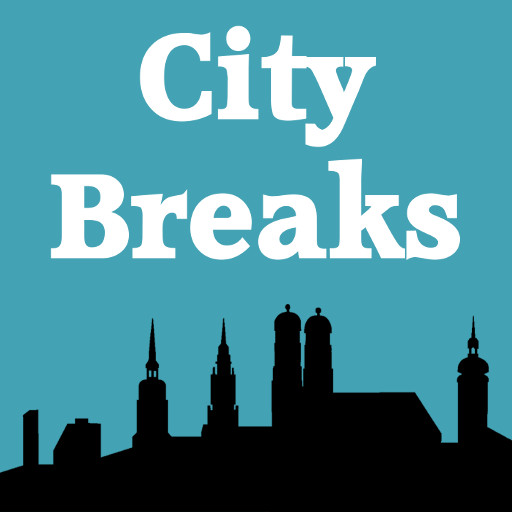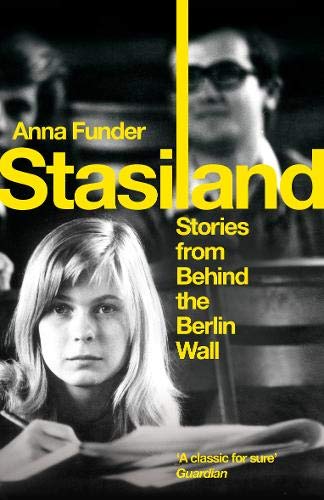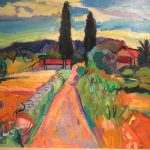Writers have had much to say about Berlin. For David Bowie, Berlin was ‘the greatest cultural extravaganza one could imagine’, while Lonely Planet editors highlighted its ‘combo of glamour and grit.’ For the Cold War Soviet leader, Nikita Khrushchev, it was all about power: ‘Berlin is the testicle of the West. When I want the West to scream, I squeeze on Berlin.’ Other writers praise everything from the leafy boulevards to the fabulous food, via world-class art and the ‘perfectly magnificent grand triumphal arch’ which is the Brandenburg Gate. That last was Catherine Wilmot, writing in 1803.
Such soundbites bring lots of ideas, but for an in-depth look, you really can’t beat reading an entire book. And to that end, here are our suggestions for four non-fiction works which all feature Berlin and bring you history, atmosphere and insider knowledge.
The House by the Lake by Thomas Harding
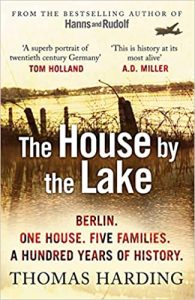
Thomas Harding researched the history of his grandmother’s house on Lake Glienicke, just outside Berlin, and wrote an account of all the people who lived there over a hundred year period, a fascinating insider view into 20th century German history. The prosperous Alexander family bought it as a summer house in the 1920s, but as Jews they were forced to flee when Hitler came to power. After the war, the house was in East Germany, right on the border with the west and one resident became a Stasi informer. The book, said reviewers, is both ‘a passionate memoir’ (Neil Macgregor) and ‘a superb work of social history’ (Sunday Times).
In an early chapter there is a description of a Jewish wedding at the Friedenstempel synagogue in Berlin in 1933, attended by 400 guests. The bride and groom make their vows under a ‘chuppah’, a flower garlanded canopy in front of the Ark. Then Harold, the groom, follows Jewish tradition by stamping on a glass to break it, a sign for the congregation to call out ‘Mazel Tov’, meaning ‘Good luck.’ This scene takes place just months after Hitler became Reichskanzler and to read it is to hold your breath, for fear of what became of the wedding couple and their guests subsequently.
Stasiland by Anna Funder

Anna Funder’s research into East Germany – the ‘Stasiland’ of the title – involved hunting through archives and interviewing scores of former East German citizens to find out how the country was run and what it was like to live there. We meet Frau Paul who had been imprisoned for attempting to flee the country, ex Stasi-men, and the ‘Puzzle Women’ who painstakingly pieced together sacks of paper torn up by the Stasi when the state collapsed. A reviewer in The Guardian found this book ‘a brilliant account of the passionate search for a brutal history in the process of being lost, forgotten and destroyed.’
One piece of evidence was a reel-to-reel tape of a propaganda programme broadcast in 1965 after two people had been shot trying to flee over the Wall or, as the presenter put it, ‘breach our national border.’ The long justification argues that the shooting was ‘a humane act’ because it would preserve the ‘peace’ of the DDR. The author watched it twice, making notes on ‘how this man turned humanity into inhumanity, these deaths into symbols of salvation.’ Just one of many pieces of evidence.
Tunnel 29 by Helena Merriman
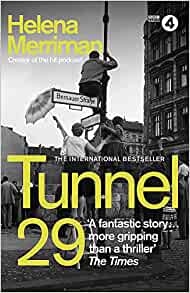
Tunnel 29 tells the true story of the West Berliners who dug a tunnel under the Berlin Wall through which 29 people crawled out of East Berlin to the West. Documents, interviews and eyewitness accounts build up the story, while simultaneously providing a picture of life behind the Wall. The history it tells is fascinating and it also reads in parts like a thriller, or as a reviewer from The Observer put it, ‘an audacious and compelling tale, told with narrative tension and novelistic drive.’
The slog of the digging is well described, of crawling through wet clay weighed down by ‘duffel bags, heavy with drills, screwdrivers, hammers and guns.’ The dangers – of collapse, of floods, of being heard by the East German police – are ever-present and the moment when the first escapee emerges is exhilarating: ‘A white handbag appears. Then a hand. An arm. Then a woman in a dark dress crawls out of the tunnel.’ The book is much more than ‘just’ this amazing story, it is an insight into life behind the wall and the lengths people went to in their quest for freedom.
Red Love by Maxim Leo
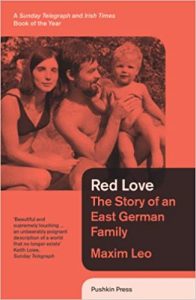
Red Love is billed as ‘the story of an East German family’ but it is also a history of Germany over three generations. The author’s family includes a grandfather who fought with the Resistance in 1940s France and parents whose working lives were shaped by the restrictions of East Germany. After his own East German childhood, the fall of the Wall allowed him to become a journalist in the West. The story, says a reviewer on goodreads.com, ‘captures, with warmth and unflinching honesty, why so many dreamed the GDR would be a new world and why, in the end, it fell apart.’
Maxim Leo describes a favourite childhood game, called ‘Escape to the West’ where one child had to evade the others – the border guards – then climb to the top of a climbing frame and shout ‘West’. He follows that with an anecdote about a class visit to see the Brandenburg Gate – or the ‘Anti-Facist-Protection-Rampart’ as the regime called it – when the eight year olds ignored their teacher’s explanation on ‘the Socialist fight for freedom’ and discussed instead how they might get to the other side. ‘With a crane somebody suggested, or with a glider, said somebody else.’
Listen to the podcast
Suggested Reading
The House by the Lake by Thomas Harding
Stasiland by Anna Funder
Tunnel 29 by Helena Merriman
Red Love by Maxim Leo
Two anthologies
Berlin: A Literary Guide for Travellers by Paul Sullivan and Marcel Krueger
City Lit Berlin edited by Heather Reyes
Last Updated on February 20, 2026 by Marian Jones
